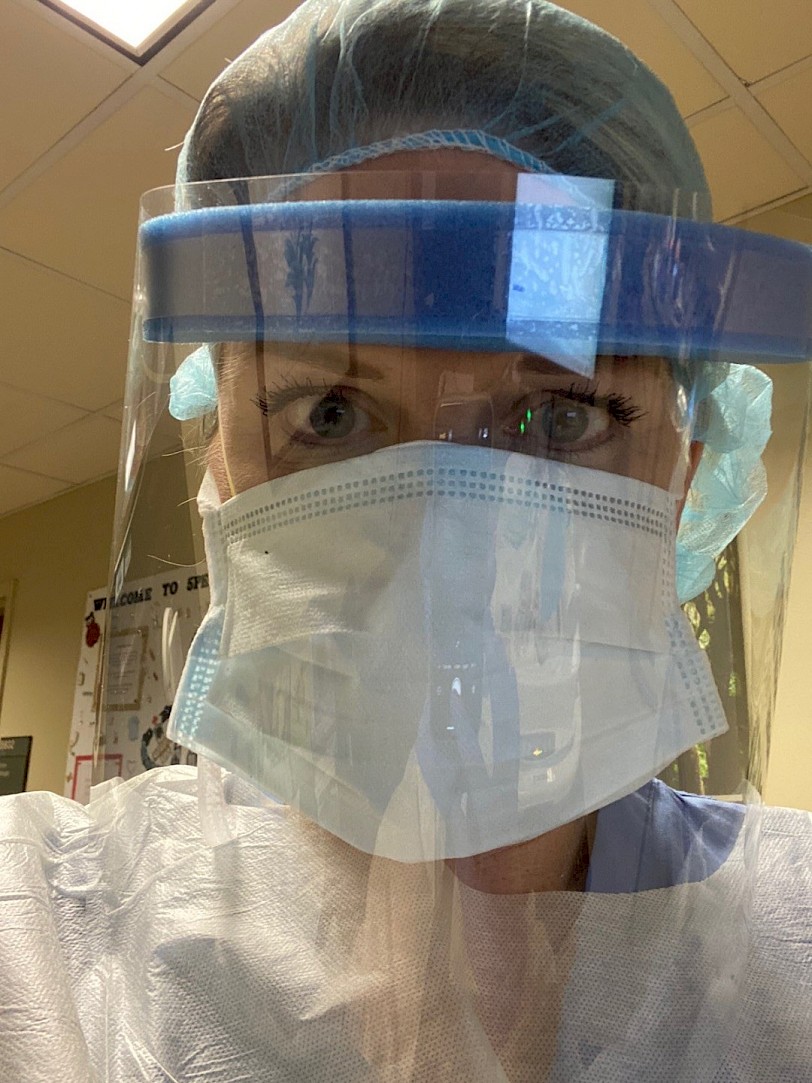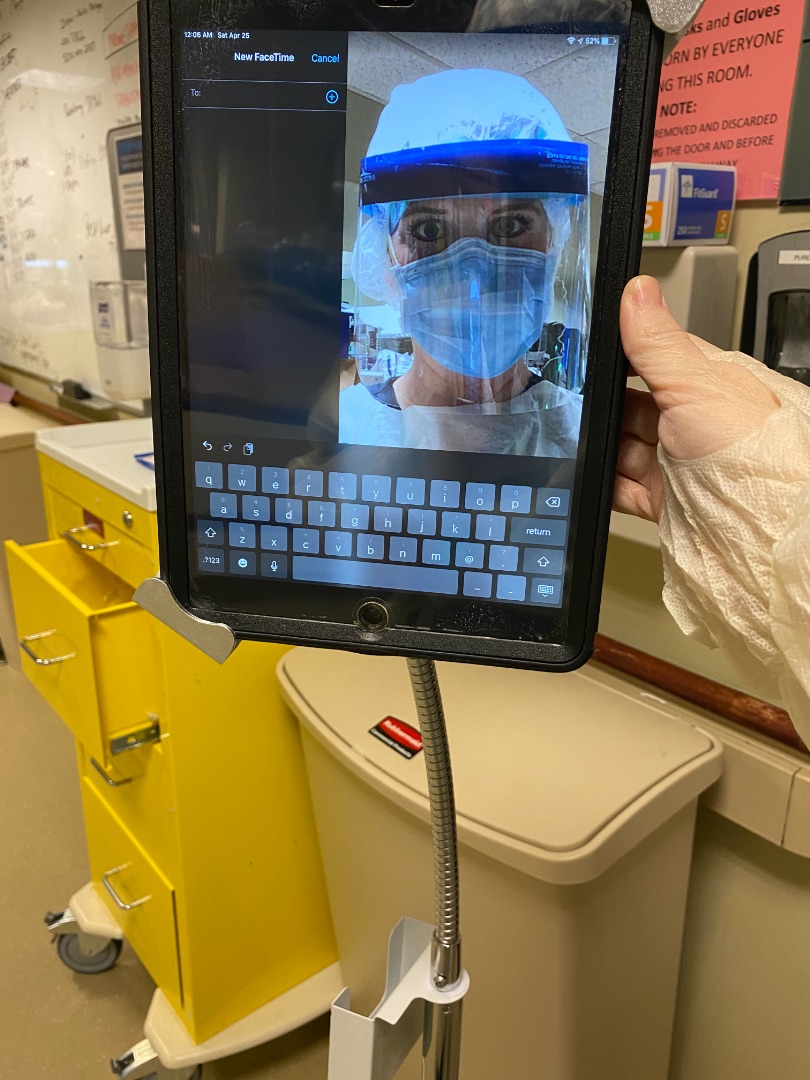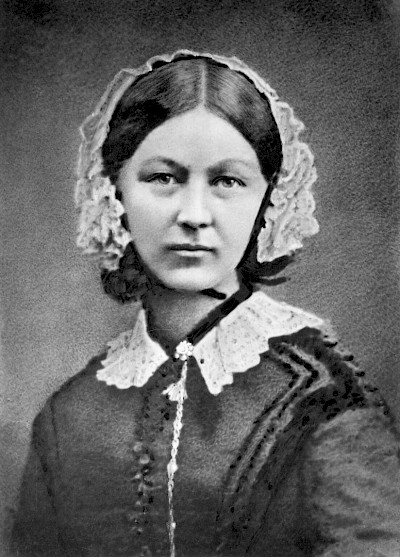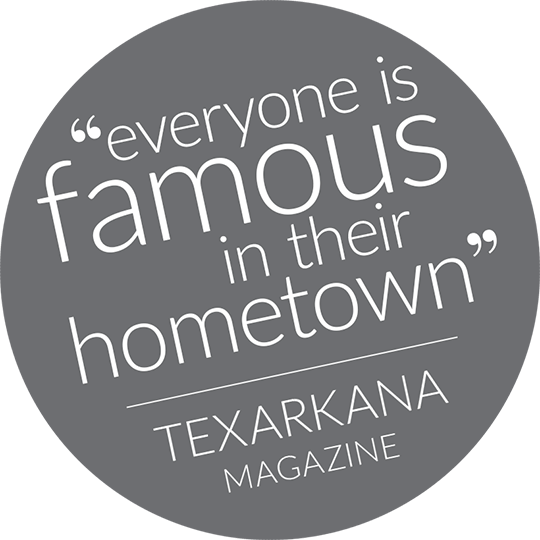Pandemic Nursing

Eight weeks ago, I packed up the safety and security of my comfortable life and left my husband and children to make the 1,300-mile journey to Hackensack, New Jersey. I was on my way to serve on the front lines of COVID-19 in one of many makeshift intensive care units in a 700-bed hospital. Quite honestly, I had no idea what to expect, and the thought of leaving my family was almost unbearable. In my mind, that was the most horrific thing I would face. The day I walked on my unit, my entire reality changed. Here I am in an unfamiliar state, a new hospital, with new coworkers, fighting a new disease. I’m running toward the danger, praying that it keeps my family safe in my own home, thousands of miles away.
This entire experience has taught me so much, with more mental and emotional anguish than I have ever experienced in my nursing career. I have learned to take this trial hour by hour, rather than day by day, and every single day I attempt to reset and brace myself for what’s coming on the next shift. I pray. I cry. I scream on the inside. My heart shatters every time a patient dies without family at their bedside, and at how vicious and destructive this virus can be to their bodies. I won’t lie, I was scared. How can I be this exposed and not end up with the virus? Medications are in short supply and constantly changing. Research medications and plasma are being given to patients when families agree to take part. Cultures are taken from every bodily fluid twice a week to guide research and gain insight into this ever-changing virus. Most times you feel you are pushing medications just to keep someone alive on the monitor, to keep death at bay just a little longer.
It’s an adjustment to realize that no matter what is happening to your patient in the room, personal protective equipment (PPE) must be donned before entering to protect your own health. This includes cardiac arrest, which happened more times than I could count. Often, I would complain about how hot isolation gowns were, or how my ears hurt from wearing a mask for 13 hours a day, or the integrity of a face shield that I wore for 19 straight shifts. Other times I was thankful to have PPE when neighboring hospitals did not. At the worst times, I was grateful for PPE that could hide my tears when I couldn’t keep them in anymore. The emotional burden truly rips at the caring heart of any nurse. Our goal was to save our patients and be an impactful force in their healing. Unfortunately, most times in these cases we could not.
Ironically, 2020 was deemed the International Year of the Nurse to honor the birth of Florence Nightingale, who advanced the nurse’s vital role in transforming healthcare around the world. I’m thinking a catered lunch would have been sufficient instead of a global pandemic. However, here we are in the midst of the chaos doing what we do best, showing up on the world’s stage with everyone watching. Behind closed doors we hold hands with the dying, wash the face of someone riddled with an angry high fever, attempt to reassure someone with panic in their eyes and a tube in their throat that cannot communicate with you. We do things they don’t teach you in nursing school. This pandemic, and the global nursing response, is something that will define who we are and the role we play in healthcare for this generation and for the future. Those are some big shoes to fill. Most nurses scoff at the use of the word “hero,” but we have been given the enormous privilege of carrying the burden during a time of global uncertainty. It is absolutely the most essential and rewarding type of work I can think of, and despite the conditions, I have thanked God for that opportunity every time I’ve stepped into my rough, oversized, hospital-issued scrubs. It’s definitely not easy work, and few may understand why we do it, but we will be there anyway, ready to fight another day.
I was here to witness and to learn and wouldn’t trade the experiences at these bedsides for anything. I will return to Texarkana with concern for what lies ahead and pray that the extent of the virus I have witnessed here never makes its way to our community.
Thank you to everyone who has checked on their frontline friends. They most likely are not okay and are feeling very much alone. Many of my experiences with COVID-19 are also happening in our Texarkana hospitals. It is very real to our hometown nurses even though it is not making the national news. Your kind words help us get through another shift, another day, another week of this new normal. You stepped up and made masks, offered meals, sent cards and snacks that did not go unnoticed, no matter how big or small the gesture. I cannot thank you enough from the very bottom of my heart.
I believe that we will come out of this tragic time better and stronger than ever. I read a post from a nurse who said they play “Here Comes the Sun” overhead every time a patient is discharged. What a beautiful sound that would be, and what hope it would bring to patients and the staff. There are so many patients I cared for that I wish could have heard that song. From now on, I am choosing hope in a world that can easily make us hard. New Jersey will always have a piece of my forever changed heart. ![]()
Click here to listen to “Here Comes the Sun” by the Beatles on Spotify.

She is married to Chad Waddell and is the mother and stepmother of five children. Alissa is part of the Flex Pool and regularly works where needed in the Emergency Room, Intensive Care, Medical/Surgical and Stepdown units of Wadley Hospital.
Utilizing a recruiter for her contract, she traveled to Hackensack, New Jersey to work an eight-week stint in the Intensive Care Unit of a 700-bed hospital in the middle of one of the most highly affected COVID-19 areas in the nation.
“With low census at our Texarkana hospital, it was the perfect opportunity,” she said. “I became a nurse as my second career for a fast-paced, challenging career that is ever changing and allows me to be a part of the healing process.” An assignment in this current crisis definitely gave her the chance to experience the full weight of that call. When asked if she has a favorite quote, she responded with one by Mae West, “You only live once. But if you do it right, once is enough.” As proven by her latest journey, walking with patients and their loved ones through the trials and heartaches of a global pandemic, she is endeavoring to be a person who lives that type of life. Texarkana is lucky to have her as part of our community.

For the first time during this crisis, I had a patient who was ventilated and alert. And scared. I tried to reassure her, fill her in on what had happened since she arrived at the hospital and had been sedated, and encourage her about how far she had come. Sadly, she knows the seriousness of her illness, she has already lost her mother to this virus.
I FaceTimed with her daughters, one who lives locally, and one in Israel. Technology is amazing, and such a gift during this time. Hoping to provide some comfort, I asked her if I could pray with her, and I thanked God for the healing He has done for her body when she agreed. I could barely get my words out as the tears started to flow.
I hope our patients know how much we worry. How we pray for them before we know who they will even be. I hope they know they are significant, and that bare bones nursing care is not what we want to give them. I hope they know that we grieve their dying bodies as they’re still living, and that we weep for them when they’re not.

Photo by Henry Hering (1814-1893)—National Portrait Gallery, London
Florence Nightingale was a trail-blazing English nurse, statistician, and social reformer and is credited as a foundational figure of modern nursing.
During the Crimean War, she cared for British and allied soldiers and improved the sanitary standards of the base hospital. She was well known for the extra care she’d give during night rounds, which earned her the nickname, “Lady with the Lamp.” She also worked to formalize the education given to all nurses and established the first scientifically centered nursing school called The Nightingale School of Nursing in London’s St. Thomas Hospital.
2020 was designated the “Year of the Nurse and Midwife” by the World Health Organization to commemorate the 200th anniversary of Nightingale’s birth and to celebrate the material role of nurses in our health care system.

